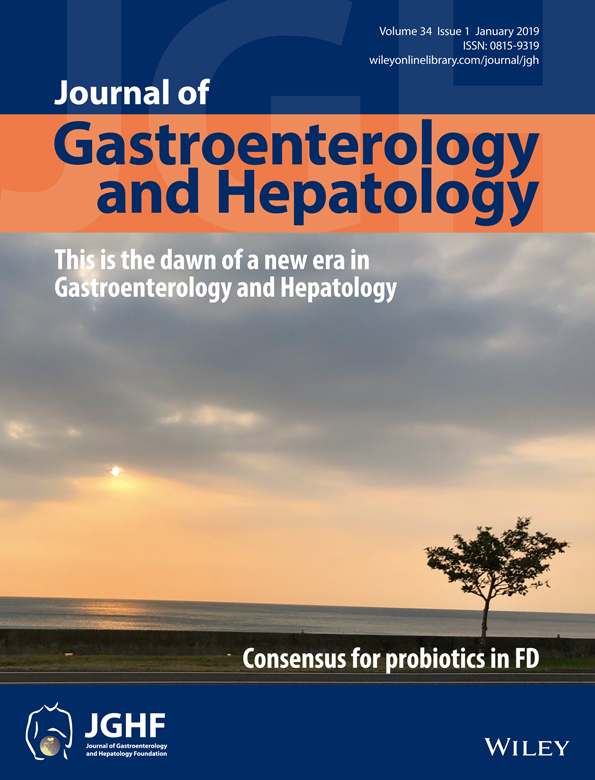β-Arrestin1 alleviates acute pancreatitis via repression of NF-κBp65 activation
Abstract
Background and Aim
β-Arrestins (β-arrs) are regulators and mediators of G protein-coupled receptor signaling that are functionally involved in inflammation. Nuclear factor-κB p65 (NF-κBp65) activation has been observed early in the onset of pancreatitis. However, the effect of β-arrs in acute pancreatitis (AP) is unclear. The aim of this study is to investigate whether β-arrs are involved in AP through activation of NF-κBp65.
Methods
Acute pancreatitis was induced by either caerulein injection or choline-deficient supplemented with ethionine diet (CDE). β-arr1 wild-type and β-arr1 knockout mice were used in the experiment. The survival rate was calculated in the CDE model mice. Histological and western blot analyses were performed in the caerulein model. Inflammatory mediators were detected by real-time polymerase chain reaction in the caerulein-induced AP mice. Furthermore, AR42J and PANC-1 cell lines were used to further study the effects of β-arr1 in caerulein-induced pancreatic cells.
Results
β-Arr1 but not β-arr2 is significantly downregulated in caerulein-induced AP in mice. Targeted deletion of β-arr1 notably upregulated expression of the pancreatic inflammatory mediators including tumor necrosis factor α and interleukin 1β as well as interleukin 6 and aggravated AP in caerulein-induced mice. β-Arr1 deficiency increased mortality in mice with CDE-induced AP. Further, β-arr1 deficiency enhanced caerulein-induced phosphorylation of NF-κBp65 both in vivo and in vitro.
Conclusion
β-Arr1 alleviates AP via repression of NF-κBp65 activation, and it is a potentially therapeutic target for AP.




